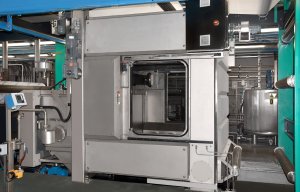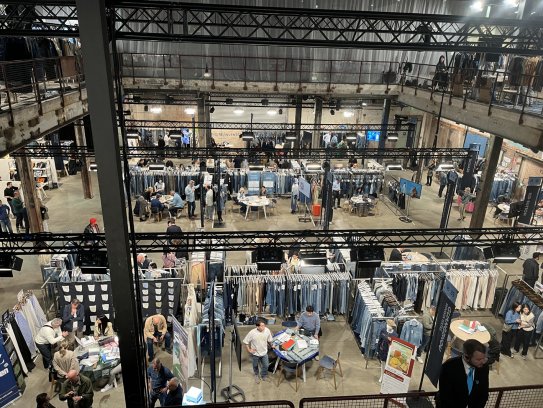
Nien Hsing buys first Karl Mayer Greendye system
Consumption during post-dye washing and rinsing varies significantly between rope and slasher processes.

30th July 2025
Innovation in Textiles
|
New York City
In response to rising concerns over vague sustainability claims and the growing need for credible environmental data in the denim industry, New York-based Transformers Foundation and the Indigo Council have launched the first cross-industry benchmark for water usage in indigo dyeing processes.
The Indigo Council includes a coalition of denim industry leaders including Advance Denim, Candiani, Crescent Bahuman, Diamond Denim, Naveena Denim, Orta and Soorty. Machinery support was provided by Morrison Textile Machinery and Karl Mayer, with additional technical oversight from bluesign and DyStar.
The study establishes baseline and best-in-class water use metrics for both rope and slasher dyeing systems, based on real-world data collected from seven mills across China, Italy, Pakistan and Turkey, following months of collaboration with dye experts, mill technicians, machinery manufacturers and chemical suppliers.
It finds that water consumption during post-dye washing and rinsing varies significantly between rope and slasher dyeing methods. It also, however, demonstrates that with the right practices in place, water usage can be substantially reduced. Findings emphasise the importance of accurate monitoring, consistent process control, and smart water management in improving dye efficiency and reducing overall environmental impact.
With the EU Green Claims Directive, the UK Green Claims Code and multiple lawsuits in the USA targeting misleading environmental claims, stakeholders across the denim supply chain are being called to back sustainability statements with measurable, transparent data. The study, entitled A Reference for Water Consumption During Indigo Dyeing, offers a tool to do just that, giving brands, mills and innovators a shared benchmark for water usage and an evidence-based way to compare new dye technologies or chemical systems.
The report is not about choosing rope or slasher systems, nor prescribing one technology over another. Instead, it is about establishing a clear and adaptable framework that helps the entire industry move beyond unsupported claims and toward meaningful change.
The Indigo Council and Transformers Foundation hope this initiative will inspire other industry stakeholders, especially mills and suppliers, to come together, share data, and co-develop open-source tools that strengthen sustainability from the supply side outward.
The report can be read in full here.

Business intelligence for the fibre, textiles and apparel industries: technologies, innovations, markets, investments, trade policy, sourcing, strategy...
Find out more